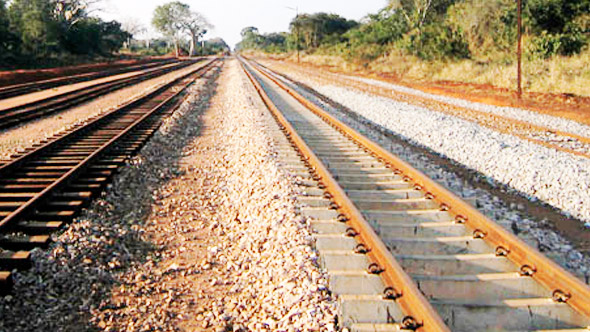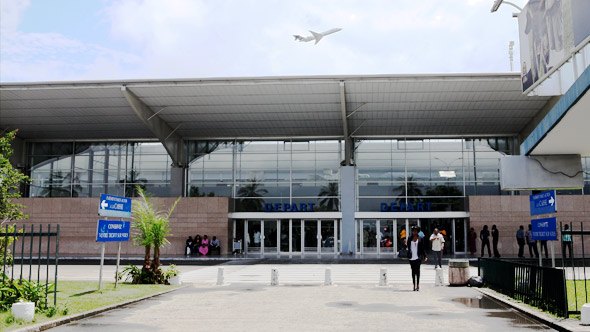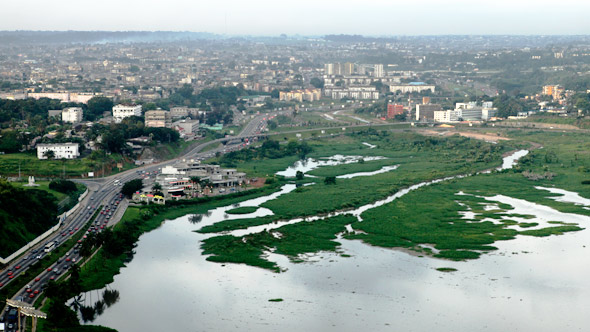Transport in Côte d’Ivoire: Roads, Railways, Maritime, Air
For more than three decades—from the time of its independence in 1961 to the 1990s—Côte d’Ivoire had one of the most advanced road networks in West Africa.

Transport in Côte d’Ivoire: Roads, Railways, Maritime, Air Transport
For more than three decades—from the time of its independence in 1961 to the 1990s—Côte d’Ivoire had one of the most advanced road networks in West Africa.
For more than three decades—from the time of its independence in 1961 to the 1990s—Côte d’Ivoire had one of the most advanced road networks in West Africa. The succeeding twenty years, however, saw both its development, maintenance, and repair come almost to a standstill as much of the systems deteriorated as a result of civil and political instability and inadequate funding. In addition, says Gaoussou Toure, Minister of Transport, in an interview in October 2011, “in the wake of the post-electoral crisis” since May 2011, the transportation sector (roads, railroads, maritime transport, and aerial) have been left in tatters.”
The civil war was finally ended and the new government has not only restored peace, but has reestablished international and banking ties. It is already the recipient of massive aid packages—and the resumption of old ones blocked due to the unrest—from France, the EU, the United States, and loans from many international sources.
The new government that has come in since the end of the civil war now has ambitious plans enact massive reforms to bring this sector up to standards. Overall, says Toure, “our strategy is to eradicate the unions, create professional industry federations, and to professionalize employees in the sector.” Toure explains:
“We believe that a unionized environment is not business friendly if our mission focuses on creating maximum wealth in the transport sector. Unions are non-lucrative structures therefore our goals are not the same. We aim for wealth where they do not. Furthermore, the economic operator is a businessman so he does not want a union against himself.
Unions do not depend on the ministry of transport but of the Ministry of Interior. The latter can sanction, and eliminate them. Unions do not interest us, we would rather do business with the transportation companies and this is why we create in each department transparent elections helping us elect delegates who will in turn elect the president of the federation of transport companies in Côte d’Ivoire. The State supports this federation.”
Creation of a National Airline
High on the new government’s list of priorities is the creation of a national airline. Côte d’Ivoire does not have a national airline, but Minister Toure says that a company has already been formed and a partnership agreement worked out with Air France. According to Toure, Air France will have a 35% stake in the company, and Côte d’Ivoire will retain 65%. Says Toure:
“Our objective is to democratize the air transportation in Côte d’Ivoire and the sub-region. Once everything is back to normal we want to build a large national company because we believe that the airline industry plays a very important role in the development strategy of Côte d’Ivoire. “
Standardization of Motor Transport
The other sectors receiving the most attention form the Ministry are the modernization and standardization of trucks, automobiles and bus transportation. “Owning an automobile is almost impossible because the West-Africans cannot afford one,” says Toure. Therefore, the say the government is attempting to streamline public auto and bus transportation. “What we need is to select three or four types of vehicles that we will continuously repair.” 
This is of immediate importance because the country’s buses and taxis are obsolete. “Our taxi system is extremely old and disorganized. The taxis used for public transportation are over 20 years old which in effect cause pollution, smog and create greenhouse gases…. “ The same is true for buses. Central to this replacement process is the standardization of models so that parts will be available and knowledgeable mechanics can be trained to maintain and repair them. According to Toure, the government plans to purchase 350 new buses.
Also high on Toure’s priorities is the type of automobiles made available on the market. “Our focus,” says Toure,
“to decrease this cost by the scale of vehicles ordered, and this is why we believe that focusing on just specific types of models will facilitate this task. In order for all of this to work though we need to go into partnerships with big dealerships, and then everything will fall into place. “
Maritime Invigoration
Côte d’Ivoire’s ambition is to become a “great maritime nation.” Of course, this is a dream envisioned for three decades from now. In the meantime, the government’s plan is to relieve the traffic on the country’s crowded roads by more efficient utilization of river and coastal transportation.
The idea behind this ambition is really quite simple and practical. In 2012, Toure foresees Côte d’Ivoire becoming a large construction zone, with the result that “Driving will become a nightmare.” Therefore, he says, “we are trying to come up with pro-active ideas to help our people travel easier from district to district.”
According to Toure, the government plans to de-monopolize this sector, and to invite private capital for developing it.
“Many companies are interested in these new projects and we are planning on de-monopolizing the sector and thus inviting whoever wants to do business in Côte d’Ivoire. However, these waterbuses will always float with the national flag on it. Even the Prime Minister will promote waterbuses by using them the most he can. By 2040, we are envisioning that Côte d’Ivoire will be a great maritime nation.”
Roads and Highways
Roads and highways are the highest priority of the government because the most important export base of the economy is agriculture. From 60% to 70% of the population is engaged in agriculture, and roads are essential to supply this population and transport crops to market.